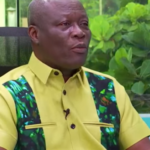On the occasion of the World Human Rights Day which falls on Sunday, 10 December 2017, Penal Reform Ghana (PRG) calls on government to, as a matter of urgency, initiate steps to comprehensively reform the country’s prison system.
Ghana’s remand system has been described by many as cruel and inhumane. It is heart-wrenching that, for instance, to this present time, bail is unjustifiably denied to some accused persons or that we still live with the situation where some accused persons are remanded for several years without trial, a situation that is unquestionably an indictment on the country’s criminal justice system.
Ghana has specific policy or legislation on prisons. The truth, however, is that the country cannot boast of any reviewed penal reform legislation that is less than two decades old.
The fact is that the policy that regulates prisons in Ghana has clearly become anachronistic and calls for severe dose of review. For instance, a close look at Section 294 of the criminal and other offenses (procedure) Act 1960 suggest that the Act needs to be amended to, among other things, include more effective ways of punishment that will reduce the number of years convicts spend under custodial sentence.
The archaic and illogical system of punishment is perhaps the best reason for the delay in hearing and disposing of criminal cases, and this explains the overcrowding of our prisons. PRG holds the view that the punishment regime in the country’s criminal system need to be broadened and expanded to include a probation period that allows a convicted person to serve part of the sentence in the community than the entire sentence in the prison. Going forward, we should consider using alternative sanctions for low-level, non-violent offenders. In this way, the prison would be reserved for dangerous or violent prisoners who must be securely confined. Our position is that if prison populations were reduced there would be fewer persons behind bars and more resources available for those who necessarily must be incarcerated.
There is also the human rights situation in our prisons to look at. Our penal reform policies and laws have traditionally focused on confining convicts within the walls of prison. Unfortunately, for the period that those prisoners remain within the prison walls, these pieces of legislation have woefully failed to effectively safeguard their human rights which are flagrantly abused.
It is common knowledge that prisoners in custodial facilities across the country are often exposed to inhuman and degrading treatment. They are packed in small cells originally built to accommodate lesser number of inmates. With reference to 2016 figures, Ghana’s prisons were overcrowded by 3,810 prisoners. Although the 43 prisons in the country were to hold a total of 9,875 prisoners, they were at the period in reference holding 13,685 prisoners. According to the Prison Service records, the convict population was 11,390, while those on remand were 2,295.
A visit to prisons across the country, on any day, will reveal that persons on remand and convicts live in filthy conditions, lacking suitable clothes, clean water, adequate food, and proper bedding or hygiene facilities.
In the light of the above, we strongly recommend regular and periodic visits to our prisons by independent monitoring organizations such as Penal Reform Ghana and the media. This is critical to protecting the rights of detainees. Our position is that in the absence of outside pressure, human rights abuses in prison can go unchecked. It does appear to us as an advocacy organization that Civil Society or NGO monitoring remains one major source of independent information on prisons in the country. This underlines the purpose for creating Penal Reform Ghana.
The argument of Penal Reform Ghana is that if people have to be put away in prison, they still deserve to be treated as human beings. Many are inappropriately admitted to remand facilities and denied access to redress. They are denied human rights and dignity and do not take part in decisions made in their own interest.
Thankfully, the new Chief Justice Her Ladyship. Sophia Akuffo, since her assumption of office on 19 June 2017, has, among other things, shown demonstrable keenness towards reforming the country’s penal system. For instance, she has underlined her support for the ‘Justice for All Programme’ (JFAP). The JFAP is a collaborative effort among the Ministry of Justice and Attorney-General’s Department, the Judicial Service, the Police Service and the Ghana Prisons Service that seeks to bring speedy justice to the marginalized and unrepresented remand prisoners.
Undoubtedly, the program has helped to reduce the number of inmates at the country’s prisons. In terms of real numbers, however, it is apparent that the programme has done very little to reduce congestion in our prisons with its attendant human rights abuse of convicts. Our prisons remain unacceptably overcrowded and can still be described as a place where human rights infractions are commonplace.
There is no gainsaying that the problem of remand prisoners has bedeviled the administration of the country’s justice delivery for far too long, and it is now time for us to be decisive towards the suggestion to introduce non-custodial sentencing which will seek to institutionalize community service programs for certain petty offenses. In the opinion of PRG, non-custodial sentencing and the community service would serve triple purposes: First, it will provide the appropriate punishment for an offense; second, it will get some public good out of the service that would be required of the convict; and third, it will contribute to de-congestion in our prisons.
This is why we in Penal Reform Ghana to applaud the Chief Justice for having recently put together a team to look into how non-custodial sentencing can be introduced into the penal system in Ghana. This is a move that PRG completely supports as a human rights and advocacy organization. PRG’s advice is that the team that has been put together must consult broadly with key stakeholders in the criminal justice system and go about its work with the seriousness or urgency it deserves. Also, the team is advised to look elsewhere, around the world, for best practices in non-custodial sentencing to inform their work.
On our part, Penal Reform Ghana will closely follow this laudable initiative by the Chief Justice and we call on the media to also show an interest in this program.
We use this global occasion to call on government to resource the Chief Justice’s team to enable it discharge this all-important national assignment with the dispatch it deserves. Additionally, we call on the government to increase investment in prison administration. Besides, the prison workforce needs to be developed and motivated, ensuring that prison officials and warders receive sufficient training on human rights at all levels.
In conclusion, we call on government to fashion out a policy framework that will lead to the complete overhaul and reformation of the country’s criminal justice system. In this direction, we will encourage the government to critically study the damning report of the UN Special Rapporteur on Torture and Other Cruel, Inhuman or Degrading Treatment or Punishment who undertook a visit to Ghana from 8 to 14 November 2013, and take pragmatic steps to apply some of the key recommendations contained in that report.
Evans Oheneba-Mensah is the Executive Director of Penal Reform Ghana














